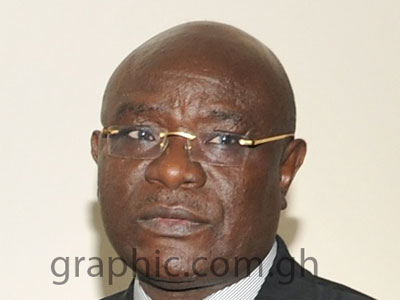Place people’s interest above partisan considerations - Doe Adjaho urges
 Parliaments in the West African sub-region have been asked to place the interest of the people above partisan and selfish considerations.
Parliaments in the West African sub-region have been asked to place the interest of the people above partisan and selfish considerations.
Advertisement
The Speaker of Parliament, Mr Edward Doe Adjaho, making the appeal, said it was, therefore, incumbent on the various parliaments to work to realise the aspirations of the people, since it was only through that that they could be relevant to the interest of the people.
“Any opposition which tries to sabotage or frustrate any government will live to regret it one day. In the same vein, any government which abuses its power and stifles the opposition would also come to regret it even more,” he said.
Mr Adjaho was addressing the ceremonial opening of the 2013 First Ordinary Session of the Cote d’Ivoire National Assembly in Abidjan last Wednesday.
He took part in the special ceremony upon the invitation of the Speaker of the Cote d’Ivoire National Assembly, Mr Guillaume Soro.
Mr Adjaho said there was the need for African governments to take measures to avoid the recurrent internal conflicts that had denied the sub-region the vital peaceful atmosphere to strengthen their fragile democracies.
“We require in our respective countries a spirit of tolerance and compromise and a strong commitment on the part of the government to confront internal dissensions and conflicts,” he said.
“Conflict situations mar our progress towards the achievement of the stable democratic governance and sustained economic growth and development,” he said
He said it was in the interest of both members of governments and the opposition to compromise on matters on national interest, since the adoption of entrenched positions did not augur well for the enhancement of democratic governance.
Mr Adjaho, praised the Ivorian government and the people of Cote d’Ivoire for the significant progress they had made towards achieving peace and stability even though there were still some challenges.
“The National Assembly of Cote d’Ivoire occupies a prominent and central position in the Ivorian democratic process. It embodies and epitomises the sovereign will of the people; it is the mirror and the voice of the nation,” he said.
Mr Adjaho added that he honoured the invitation for the opening ceremony because Ghana cherished its relationship with the government and people of Cote d’Ivoire.
“It is probable that if artificial boundaries currently separating our two nations had not been created by the colonialists in Berlin, we may all have been citizens of one country, or better still members of the same parliament”.
Mr Adjaho explained that it had been a basic tenet of Ghana’s foreign policy since independence to work towards fostering the closest possible co-operation and collaboration with its neighbouring states.
On the economic front, he said Ghana depended on Cote d’Ivoire for a substantial amount of its electricity requirements to complement its domestic production, while the levels of trade between the two countries had increased in recent times.
According to him, industries and businesses had taken advantage of the ECOWAS Trade Liberalisation Scheme to increase their market shares in each country, explaining that trade in agricultural products, especially plantain, had also increased.
Mr Adjaho said given the huge volumes and weight in cocoa and coffee production, Ghana and Cote d’Ivoire set up a Joint Technical Committee on Cocoa in January 2012 to address price stability and strategies for cocoa management, pest control and cocoa waste; research into diseases; and to work towards handling of cross-border cocoa smuggling and child labour.
He said it was refreshing to learn that officials from Ghana and Cote d’Ivoire border posts continued to meet regularly to harmonise activities and jointly operate at their respective sides to facilitate customs and immigration formalities.
Mr Adjaho said the two legislative institutions would need to work towards a programme of partnership involving exchange of ideas and sharing of experiences, adding “we in the Ghana Parliament recognise the obvious utility and value of developing and maintaining close and continuing links with you, our neighbour”.
He explained that such a bilateral programme would afford the two parliaments the opportunity to deliberate on topical matters of common interest, including issues and challenges which centre on security along their common national borders, the prevention of international terrorism and the free movement of goods and services across the borders.
For his part, Mr Soro said the people of Cote d’Ivoire were determined to rebuild the country to enable it to regain its former glory.
He said the National Assembly was in the position to enact laws that would assist the country in its rebuilding process and called on all factions to play their parts in the rebuilding efforts.
Mr Soro recounted efforts by leaders in the sub-region towards finding a lasting solution to the Malian crisis and gave an assurance that Cote d’Ivoire would continue to play its part to bring peace to West Africa.
Speakers of parliaments from Gabon, Mali, Togo, Benin, Congo DR, Congo Brazzaville and Niger also addressed the gathering.
Story: Emmanuel Adu-Gyamerah



